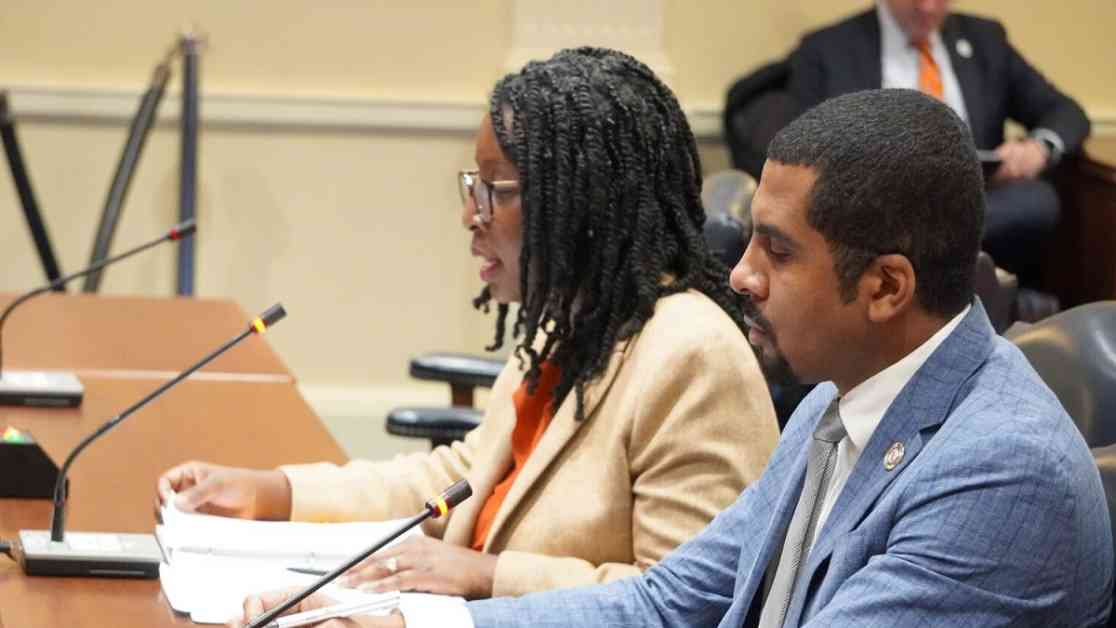Funding Shock Trauma Center: Excise Tax Proposal in Southern Maryland
In a poignant testimony before the House Ways and Means Committee, Del. Bernice Mireku-North (D-Montgomery) put forth a bill proposing an 11% state excise tax on firearm sales in Maryland. The legislation aims to address the devastating consequences of gun violence, not only for individuals like Natalie Vinski Ibrahim and her young son but also for communities across the state.
Natalie Vinski Ibrahim recounted the harrowing experience of being struck by stray bullets during a leisurely afternoon at a playground near her Howard County home. Her son, just four years old at the time, sustained injuries that required the removal of bullet fragments from his arm, while Vinski Ibrahim still lives with a bullet lodged in her leg. The physical and emotional toll of that fateful day remains a constant presence in their lives, driving Vinski Ibrahim to advocate for measures that could prevent such tragedies in the future.
As a volunteer with Moms Demand Action in Howard County, Vinski Ibrahim passionately supports the proposed excise tax on firearms, viewing it as a meaningful step towards addressing the pervasive harm caused by gun violence in Maryland. She firmly believes that such legislative efforts are essential in curbing the devastating impacts of firearms in communities across the state.
Del. Bernice Mireku-North, the driving force behind the bill, underscored the financial burden imposed by gun violence on the state, amounting to an estimated $10.5 billion annually. With a significant portion of this cost shouldered by taxpayers to the tune of nearly $384 million, Mireku-North emphasized the urgent need for sustainable funding mechanisms to support gun violence treatment and prevention programs.
The proposed Comprehensive Community Safety Funding Act aims to direct revenue from the excise tax to various initiatives, including critical programs and centers addressing the multifaceted challenges posed by gun violence. By allocating funds to institutions such as the University of Maryland Medical System’s R Adams Cowley Shock Trauma Center and the Maryland Violence Intervention and Prevention program, the bill seeks to bolster community resilience and enhance public safety efforts.
Despite the noble intentions underpinning the legislation, it has faced opposition from critics who argue that existing federal excise taxes on firearms and ammunition already address these concerns. Concerns have been raised that the proposed excise tax could unfairly burden responsible gun owners, potentially inflating the cost of firearm ownership and limiting access to self-defense tools for law-abiding citizens.
Cathy Wright, a member of the Maryland State Rifle Pistol Association board, expressed apprehensions about the bill’s implications, cautioning against the perceived infringement on constitutional freedoms associated with gun ownership. The contentious nature of the proposed excise tax underscores the complex interplay between public safety imperatives and individual rights, setting the stage for a robust debate on the bill’s merits.
Looking ahead, the bill outlines a comprehensive taxation framework that targets firearms sold by federally licensed dealers, with provisions for expanding the tax base to include additional retailers in the future. The fiscal projections accompanying the bill highlight the anticipated revenue gains, estimating an annual yield of $15 million starting in fiscal 2028, with incremental increases in subsequent years.
While proponents of the bill argue that the excise tax is a necessary step towards addressing the public health crisis of gun violence, opponents remain steadfast in their opposition, invoking constitutional arguments against the taxation of fundamental rights. The impending legislative battle over the fate of the Comprehensive Community Safety Funding Act underscores the broader societal tensions surrounding gun control measures and public safety initiatives.
In conclusion, the proposed excise tax on firearm sales in Maryland represents a pivotal moment in the ongoing debate over gun violence prevention and public safety funding. As stakeholders on both sides of the issue gear up for a legislative showdown, the fate of the bill hangs in the balance, with far-reaching implications for the future of community safety in Maryland.
















